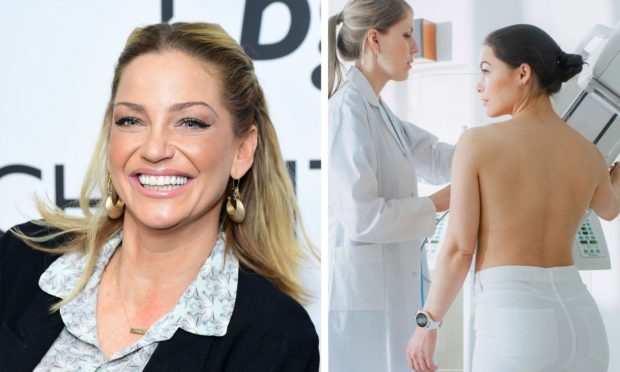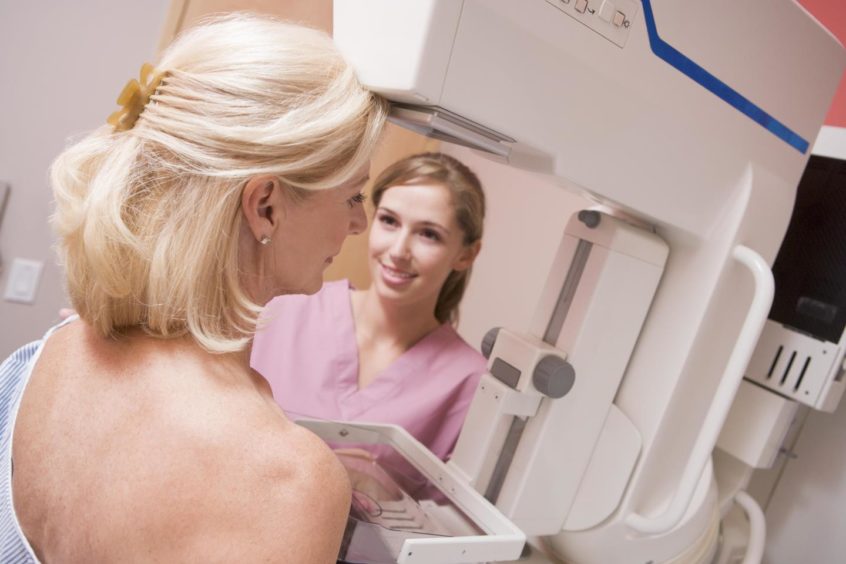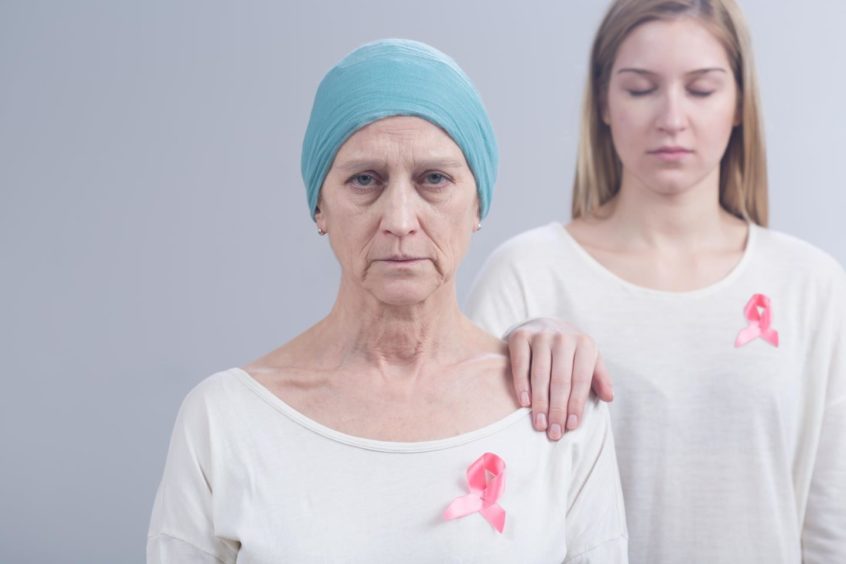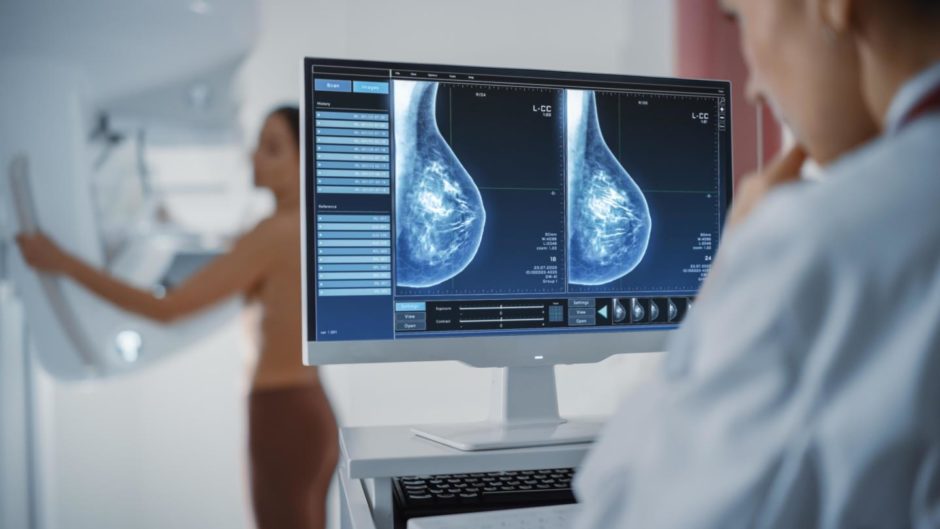Celebrities, fans and friends have flocked to social media to pay tribute to Girls Aloud singer Sarah Harding, who passed away after battling breast cancer.
The 39-year-old star was diagnosed with cancer last year and publicly revealed she was fighting the illness, which had also spread to other parts of her body.
Sarah lost her battle with breast cancer yesterday morning, as revealed by her mother Marie on Instagram.
The 8 most common symptoms of breast cancer you should never ignore
Breast cancer is currently the most common cancer in the UK, with one in eight women being diagnosed in their lifetime.
According to Cancer Research UK (CRUK), across Britain there are more than 55,000 new cases of breast cancer diagnosed every year – that’s around 150 per day.
A lump in your breast is a common sign of breast cancer, but there are more possible signs and symptoms of the disease, which should always be checked out by your doctor.
These are eight possible symptoms of breast cancer – although a person may have just one or all signs:
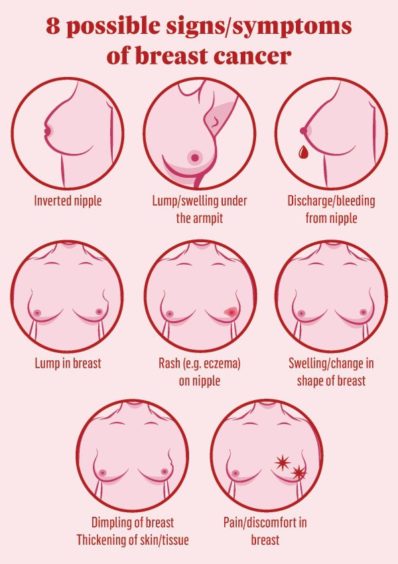
It’s important to note that not all breast lumps are linked to cancer, according to Macmillan Cancer Support.
Lumps in the breast could also be caused by cysts, however, any changes to a person’s breasts should still be checked out by a GP to rule out anything more serious.
What causes breast cancer?
The causes of breast cancer are unfortunately not fully understood, although there are some risk factors, which include:
Age
The risk of developing breast cancer increases with age. Around eight out of 10 cases of breast cancer are diagnosed in women over 50.
Family history
If a relative has been diagnosed with breast cancer, a person might have a higher risk of also going on to develop the disease.
But as breast cancer is common, the NHS say it is possible for more than one person in a family to be diagnosed with the illness by chance.
Genes known as BRCA1 and BRCA2 can increase your risk of developing both breast and ovarian cancer. Your GP could refer you for genetic testing if cancer runs in your family.
Dense breast tissue
A woman’s breasts are made up of thousands of glands (lobules) that produce milk for breastfeeding. The tissue contains a higher concentration of breast cells than other breast tissue, making it denser.
Women with dense breast tissue may have a higher risk of developing breast cancer.
Other risk factors include hormones and hormone medicine, lifestyle and radiation.
How is breast cancer treated?
There are a range of treatments for breast cancer including;
- Surgery
- Radiotherapy
- Chemotherapy
- Hormone therapy
- Targeted therapy
Some people may have a combination of these treatments, while others will only have one. Treatment will depend on the type of breast cancer and the stage it is at.
How do I check for a lump in my breast?
The diagram below explains how to check your breasts for lumps. The NHS also provides a helpful guide.
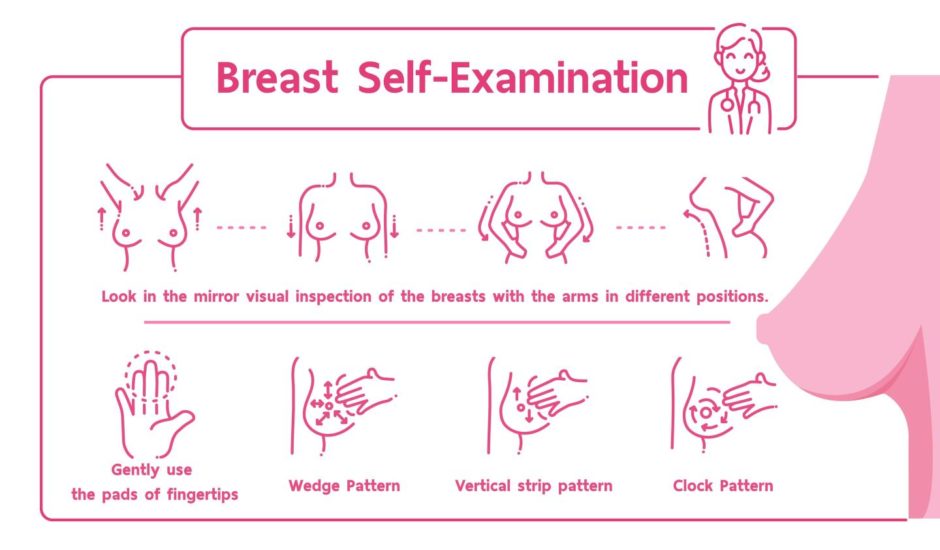
I’ve just been diagnosed with breast cancer, where can I find support?
There are a number of charities and organisations that offer support to those who have been diagnosed with breast cancer.
Just some of these include; CLAN Cancer Support, Macmillan Cancer Support, Friends of Anchor and Maggie’s.
Read more…
- Woman, 31, diagnosed with triple negative breast cancer days before wedding tells of life post-treatment
- Watch: After being told she had months to live just 17 days after a ‘cancer-free’ celebration, Amanda ties the knot at rainbow wedding ceremony
- Highlights from the career of Girls Aloud star Sarah Harding
